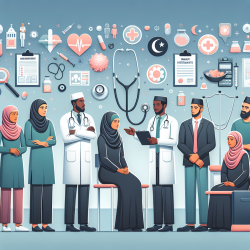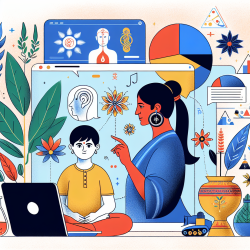Building Better Connections: Improving Cultural Competency for Non-Muslim Clinicians

In today’s diverse society, understanding cultural differences is essential for providing equitable healthcare. This is particularly true for non-Muslim clinicians treating Muslim patients. A recent literature review titled "Towards a better understanding between non-Muslim primary care clinicians and Muslim patients: A literature review intended to reduce health care inequities in Muslim patients" provides valuable insights into this area. Here’s how you can implement the findings to improve your practice.
Key Insights from the Research
The literature review highlights several areas where non-Muslim clinicians can improve their understanding and care for Muslim patients:
- Islamic Practices and Health: Familiarity with Islamic practices such as fasting during Ramadan, dietary restrictions, and the importance of modesty can help clinicians provide more culturally sensitive care.
- Social Etiquette: Understanding social customs, such as the preference for same-gender healthcare providers and the significance of family involvement, can improve patient trust and communication.
- Cancer Screening: Cultural sensitivity can increase participation in preventive care, such as cancer screenings, which is often lower among Muslim patients due to modesty concerns and lack of culturally competent care.
- Mental Health: Recognizing the stigma around mental health in Muslim communities and incorporating religious practices into care can improve mental health outcomes.
Practical Steps for Clinicians
To enhance your practice, consider the following steps:
- Educate Yourself: Learn about Islamic practices and how they impact healthcare. Resources such as the Islamic Society of North America (www.isna.net) can be valuable.
- Build Rapport: Use culturally appropriate greetings like “Asalaam aleikum” and be mindful of social customs, such as avoiding handshakes with the opposite gender unless initiated by the patient.
- Involve the Family: Respect patient autonomy while appropriately involving family members in care decisions, as family plays a central role in many Muslim patients' lives.
- Offer Culturally Sensitive Care: Accommodate dietary restrictions by offering Halal food options and be aware of medications that may contain non-permissible ingredients.
- Address Mental Health: Incorporate religious practices into mental health care and work to reduce stigma by providing culturally relevant counseling options.
Encouraging Further Research
The review emphasizes the need for further research to better understand and address health inequities faced by Muslim patients. Clinicians are encouraged to participate in and support research initiatives that aim to improve cultural competency and healthcare outcomes for this population.
Conclusion
By integrating the findings from this literature review into your practice, you can improve the quality of care for Muslim patients and contribute to reducing healthcare inequities. To read the original research paper, please follow this link:
Towards a better understanding between non-Muslim primary care clinicians and Muslim patients: A literature review intended to reduce health care inequities in Muslim patients.
Citation: King, J. K., Kieu, A., El-Deyarbi, M., Aljneibi, N., Al-Shamsi, S., Hashim, M. J., Östlundh, L., King, K. E., King, R. H., & Khan, M. A. B. (2023). Towards a better understanding between non-Muslim primary care clinicians and Muslim patients: A literature review intended to reduce health care inequities in Muslim patients. Health Policy Open, 100092. https://doi.org/10.1016/j.hpopen.2023.100092










